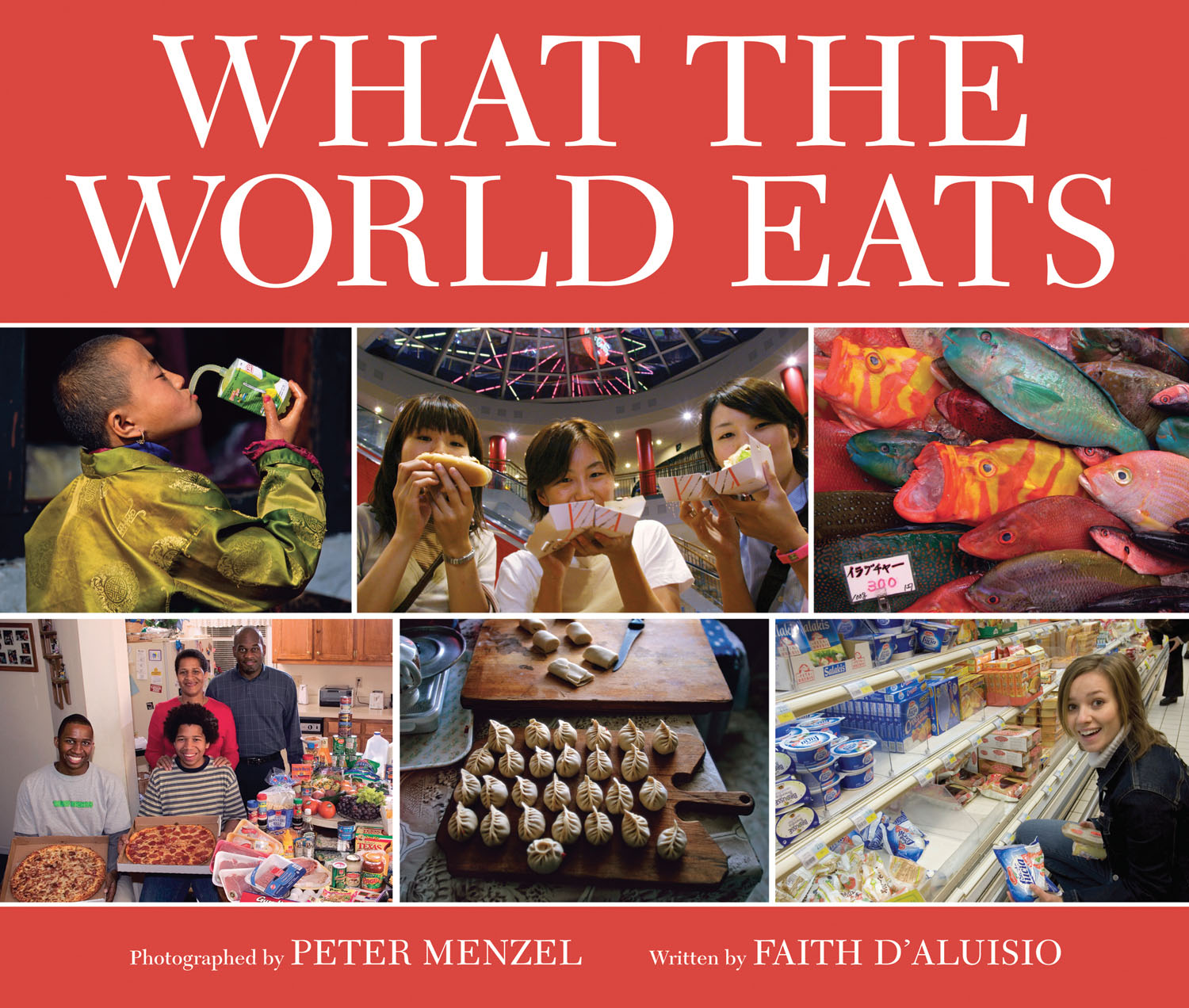Module 7
D’Alusio, F. (2008). What the World Eats. Berkley, California: Tricycle Books.
Faith D’Alusio and her life companion Peter Menzel visited countries all over the world and photographed 25 families in those countries surrounded by the food that each family would typically eat in one week. The text gives a little glimpse of the life of each family. Interspersed are charts and facts and figures having to do with eating habits and caloric intake and other aspects of food throughout the world.
My View:
This was one of my favorite books this semester. Maybe it’s my social consciousness streak taking over, but I found much to love here. The 25 families represented in the book’s pages seemed so fresh and approachable and willing to be known. I loved the smiles of pure kindness that shone out of what could be, by our standards, situations of utter misery. It reminds me of the Nepali faces I love so well. Innocence, or at least openness doesn’t have to disappear when there is little to go around. In fact, it seems that when there is less, there is even more determination to share. Another thing I liked was the abundance of fresh food in some of the poorest areas and the stark example of processed food in the areas where the economic condition allows the people access to more variety. For me, I want to live more simply and on less. Of course I would rather this be voluntary than enforced by economic stricture, but these wonderful families show it can be done, and done cheerfully. Now to help the boys get on board as well . . .
“Adapted from last year's Hungry Planet, this brilliantly executed work visits 25 families in 21 countries around the world. . . . Engrossing and certain to stimulate.”
— (2008). Children’s Books. Publishers Weekly 255(35), 55.
Ideas for the library: One of the suggestions for this year’s Summer Reading Program was that the kids choose one day and read every single label on the stuff they eat. In my family we don’t eat much that comes out of boxes and cans, but I know even so we have a whole pile of recycling every week. I’ll clip labels from those boxes and cans and ask my staff save labels from their food as well. I could paste them on a poster and have a whole display about our eating habits and ingredients—and the trends of our society. We have copies of Hungry Planet as well, and wouldn’t it be fascinating to have people think seriously about what they take into their bodies. I think I’ll add a few copies of Material World, Fast Food Nation, and Supersize Me as well. Interesting commentary and stimulus for discussion, eh? I hope it’s not TOO political.
10 August 2010
Subscribe to:
Post Comments (Atom)


No comments:
Post a Comment